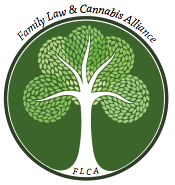
November 8th, 2016 was a historic day for marijuana policy reform, with eight states passing ballot measures either legalizing adult use of marijuana or establishing medical marijuana programs. The passage of Massachusetts’ Question 4 was also a landmark victory for parents adversely affected by marijuana prohibition, as the ballot initiative included parent-protective provisions.
Today, the Regulation and Taxation of Marijuana Act goes into effect and Massachusetts parents will be better protected from unnecessary CPS intervention. While Massachusetts is not the first state to have provisions to protect parents, it is the first to have strong enough language to help ensure that parents cannot lose their custody, visitation, or parental rights based solely on their cannabis use. Question 4 included the strongest parent-protective provisions of any marijuana law that has ever passed in a US state.
Despite the fact that more than half of the country has repealed some form of marijuana prohibition, families are still left behind without policies in place to protect parents from facing Child Protective Services (CPS) actions for their cannabis use. In states where marijuana is legal for medical and/or adult recreational use, parents are still having their custody challenged, or even their parental rights completely terminated, based on their use of an otherwise legal substance. Parents have even been accused of child abuse or neglect for state-legal marijuana use alone. If normal and responsible use of alcohol or legally prescribed medication do not affect an individual’s ability to be a parent and do not warrant CPS intervention, then normal and responsible use of medical or recreational cannabis should also not warrant CPS intervention. Parent-protective provisions must be included in marijuana legalization initiatives to make sure that parents who use cannabis can retain their rights. Question 4 is precedent-setting for all future medical marijuana and adult recreational use legislation and ballot initiatives.
The provision included in Massachusetts’ Regulation and Taxation of Marijuana Act uses language from Family Law & Cannabis Alliance’s model parent-protective language. FLCA founder Sara Arnold and FLCA Board of Directors member Shaleen Title worked on getting this parent-protective provision in the ballot initiative by advocating for its inclusion and editing it to satisfy the bill’s drafters. FLCA’s model language was carefully crafted to ensure full protection from CPS investigations, assessments and proceedings as well as custodial matters between parents in family court. The language in the Regulation and Taxation of Marijuana Act does not ensure such full coverage but prevents CPS from using cannabis as a determining factor in custodial and termination of rights cases and other proceedings.
California’s Proposition 64 also included some parent-protective language that was based on FLCA’s model language. However, Proposition 64 will be very limited in protecting parents as the parent-protective provision is restricted to medical patients and allows state-legal cannabis use to be a determining factor in child custody.
It is still too early to tell how the new laws will play out in family court and how CPS will respond, as they are likely to fight back while the law’s regulations are being written and for some time to come after. However, Family Law & Cannabis Alliance is ready to put pressure on those writing the regulations to fully implement the parent-protective provision and assist with ensuring the laws are followed by the Massachusetts and California state governments.
On its one-year anniversary, Family Law & Cannabis Alliance (FLCA) is proud to announce the official launch of its legal network for attorneys and families.
PRESS RELEASE (October 14, 2014)
Even in states where marijuana is now legal, decriminalized, or approved for medical purposes, parents, guardians, patients & caregivers around the country are facing scrutiny from the child welfare and family court systems, which often equate use of marijuana by a parent or guardian as child abuse or neglect and use it as a basis to limit parental rights. “Marijuana use does not make someone a bad parent,” said Sara Arnold (a.k.a. Sahra Kant), co-founder of Family Law and Cannabis Alliance. “It should not be the primary or sole basis for any CPS investigation.”
The only one of its kind in the country, FLCA’s legal network includes a confidential internal database of family law attorneys who work on or are willing to work on Child Protective Services and family or juvenile court cases (including child custody) involving the use of medical or recreational marijuana by a parent or legal guardian, or medical treatment of a severely ill child. FLCA’s advocates regularly screen inquiries from individuals and families and make referrals to local attorneys in the network for legal advice. FLCA supports legal network counsel by providing expert consultation, help obtaining affidavits and expert testimony, scientific and public health research to supplement briefs, and other assistance on family court cases or administrative proceedings. FLCA also offers model language for marijuana reform legislation and ballot initiatives. Although donations are accepted, all services are provided at no cost to lawyers or clients.
“If you’re arrested for a cannabis crime, finding a lawyer to represent you is fairly simple,” said recent law school and public health graduate and FLCA co-founder, Jess Cochrane. “Getting help while facing CPS or a custody battle is a lot more complicated—until now. FLCA’s legal network connects capable family law attorneys with parents and pregnant women in need all over the country, and provides up-to-date, expert consultation on rapidly-evolving marijuana laws and their intersection with child welfare policy.”
Please contact Sara Arnold at media@flcalliance.org for more information on this press release. For more information on FLCA and its mission, please see http://www.flcalliance.org/, go to http://www.flcalliance.org/for-lawyers/ to become an early adopter of FLCA’s legal network, and check us out on social media on Facebook and Twitter at @flcalliance.
http://flcalliance.org/media/press-releases/legal-network-launch-oct-2014/

Our newest state profile is the sunshine state of Florida. Unsurprisingly, Florida has some of the harshest policies we’ve come across so far. These policies as well as the laws and regulations are extensive and complicated. We break it down for you to only what is relevant for a parent who uses cannabis or a child who is being treated with medical marijuana.
As always, we welcome your feedback! Please share this with your friends so all Floridians can benefit!

FLCA’s newest state profile is Tennessee, as voted on in our state profile poll by our Facebook fans and Twitter followers! It is a particularly complicated state with a surprising amount of laws, regulations, and policies on CPS and family court. Did you know that if you use marijuana while pregnant in Tennessee and your infant tests positive, it is considered physical abuse?
Read about this and more on our Tennessee state profile! We welcome your feedback. Please share widely!

Today, we’re pleased to announce that we’ve added a brand new resource to the site: a how-to of dealing with CPS! Parents: be proactive instead of afraid! Know what to do if CPS calls, come to your home unannounced, or investigates you and your family.
Please like and share this page — knowledge is power!

In Michigan, State Senator Rick Jones has introduced SB736. The text in summary: Michigan parents who are also medical marijuana patients should be investigated and determined by CPS and/or family court whether they can actually parent, required to release their medical records in perpetuity, forced into a medical evaluation by a court-appointed doctor, and be forced to stop cannabis medication or be constantly watched if allowed to remain a patient (as well as “any other order necessary”). Full text of the bill is here.
Most of the parts of SB736 line up with what already exists in Michigan laws and policies about CPS and medical marijuana (see: our state profile). Which is to say, it is already true that medical marijuana patient parents are investigated to determine if they are non-neglectful and non-abusive (or at future risk of such), forced to stop their medication in the context of a service plan, etc. There just hasn’t been an attempt to codify it in quite this manner and to this extent.















Recent Comments